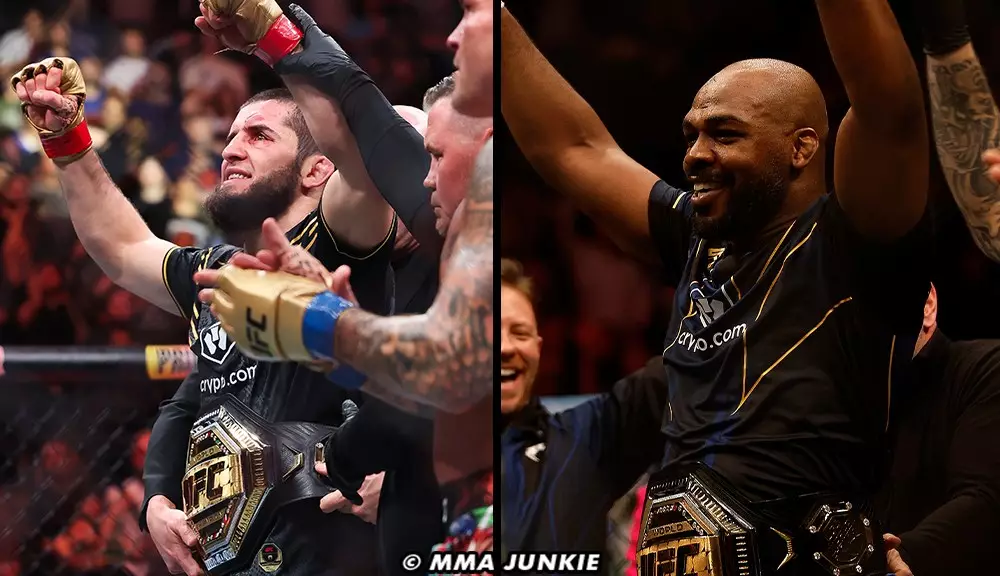In the ever-evolving landscape of mixed martial arts (MMA), the concept of “pound-for-pound” rankings has always ignited fervent debate among fans, analysts, and fighters alike. Recently, this contention has flared up due to comments made by UFC commentator Jon Anik regarding the positioning of Islam Makhachev and Jon Jones in the UFC rankings. Anik’s perspective diverges significantly from UFC president Dana White, who staunchly defends Jones’s position as the clear-cut No. 1. This clash between two industry figures sheds light on the complexities involved in ranking fighters, particularly in a sport as dynamic as MMA.
At the forefront of this discourse is Islam Makhachev’s impressive record, boasting an MMA record of 25 wins and just one loss. His most recent victory came against formidable contender Dustin Poirier, where his grappling prowess was on full display as he executed picture-perfect takedowns and submissions. Anik argues that Makhachev’s ability to dominate such a competitive matchup underscores his right to claim the top spot in pound-for-pound rankings. Anik’s commendation of Makhachev is not surprising, as lightweight is widely recognized as one of the most competitive divisions in the UFC.
Anik maintains that Makhachev’s successes in a highly regarded division naturally enhance his standing, and this perspective invites scrutiny of Jones’s inactivity. Although many fans idolize Jones for his unparalleled skill and past achievements, Anik’s argument implies that time spent outside the octagon diminishes a fighter’s claim to the top spot. While Jones’s return to heavyweight is anticipated, it raises questions about whether his past dominance can overshadow the current momentum of active champions.
Critics of Jones often point to the long gaps between his fights as a primary reason for his slide down the rankings. It’s undeniable that a fighter’s reputation can only hold for so long if they do not actively defend their title or face new competitors. In this regard, Anik’s assertion highlights a fundamental flaw in how rankings are established and perceived. Jones last competed in March 2023 to capture the vacant heavyweight title, but whether that lone bout is enough to reign supreme in the pound-for-pound debate remains contentious.
Furthermore, the upcoming heavyweight title defense against Stipe Miocic is pivotal for Jones. Anik suggests that should Jones decide to retire post-fight—a prospect that both Jones and his coaching staff have hinted at—he would escape criticism, given his accomplished career. However, for many, there lingers the curiosity of whether he could have solidified his legacy by facing an emerging threat like Tom Aspinall.
The clash between Anik and White encapsulates the ongoing debates defining the sport of MMA. While Anik stands firmly behind the impact of recent performances and active competition in determining rankings, White remains a steadfast supporter of Jones’s long-standing legacy. This divergence in opinion is reflective of a larger conversation within the UFC community about how best to honor the diverse achievements of fighters amid the volatile nature of their careers. As the sport continues to evolve, so too will the criteria we use to evaluate and appreciate the elite athletes that occupy its ranks.

